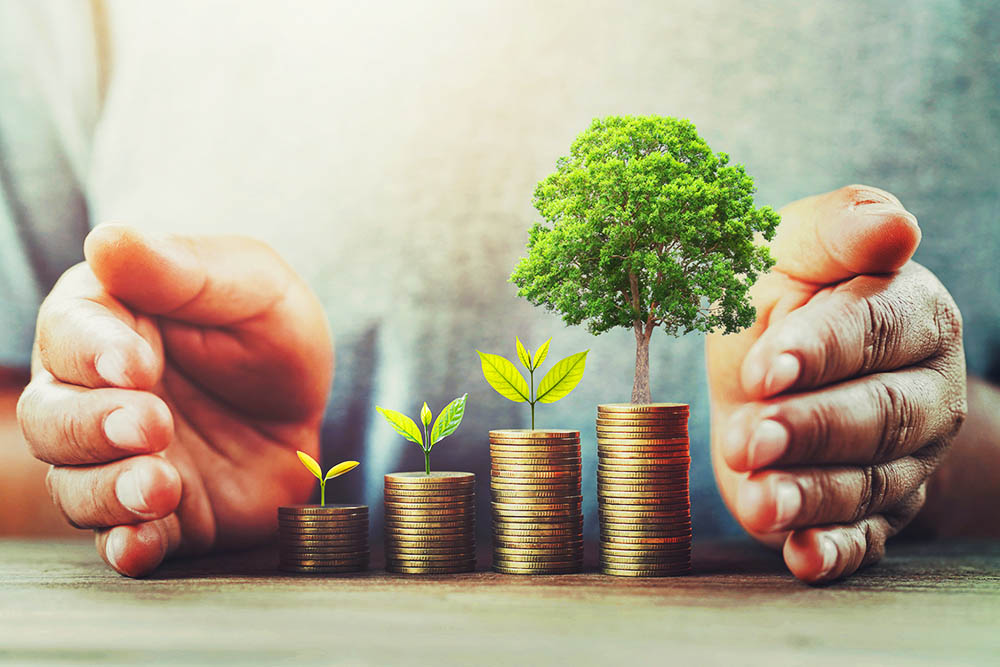The Importance of Building Reserves
When it comes to managing our finances, building and maintaining reserves is one of the most important steps we can take. Reserves are essentially savings, which can be used for emergencies, unexpected expenses, or even long-term goals. By setting aside a portion of our income and building up our reserves, we can ensure that we’re prepared for whatever life throws our way.
Why Reserves are Essential for Financial Security
Having reserves is crucial for achieving financial security. Without them, we may find ourselves struggling to cope with unexpected expenses, like sudden car repairs or medical bills. And, in the worst-case scenario, we may even be forced to turn to credit cards or loans to make ends meet.
Not only can this lead to a cycle of debt and financial insecurity, but it can also damage our credit score and make it more difficult to obtain loans or credit in the future. By building up reserves, we can avoid this scenario and ensure that we’re equipped to handle whatever challenges come our way.
The Benefits of Reserves
Building and maintaining reserves doesn’t just provide financial security – it also comes with a range of other benefits. For one, having reserves can provide peace of mind, knowing that we have a safety net in place in case of emergencies.
Reserves can also help us achieve other financial goals, like saving for a down payment on a home, paying for a child’s education, or planning for retirement. By setting aside money regularly and earning interest on our savings, we can make our money work harder for us.
How to Build Reserves
Building up reserves doesn’t happen overnight, but it’s a goal that’s achievable with the right approach. Here are some tips for building reserves:
1. Set a goal. Decide how much you’d like to save, and set a target date for reaching your goal. This can help keep you motivated and on track.
2. Make it automatic. Set up automatic transfers from your checking account to a savings account each month. This ensures that you’re putting money away consistently, without having to think about it.
3. Cut expenses. Take a hard look at your budget and see where you can cut back on expenses. Maybe you can reduce your cable bill, cook more meals at home, or cancel subscriptions you no longer use.
4. Increase income. Find ways to increase your income, such as picking up a side job or starting a small business. Even a small amount of extra income each month can go a long way towards building up your reserves.
How Much Should You Have in Reserves?
Determining how much to save in reserves can be a bit tricky – there’s no one-size-fits-all answer. Generally, financial experts recommend having enough saved to cover three to six months’ worth of living expenses.
However, this may vary depending on your individual situation. If you have a stable job and a significant other who contributes to household expenses, you may feel comfortable with a smaller reserve fund. On the other hand, if you’re self-employed or have irregular income, you may want to aim for a larger reserve fund to provide more security.
Where to Keep Your Reserves
Once you’ve built up your reserve fund, it’s important to keep it in a safe, accessible place. Here are some options:
1. Savings accounts. Keeping your reserves in a high-yield savings account is a safe bet. These accounts offer relatively high interest rates and easy access to your money.
2. Money market accounts. Similar to savings accounts, money market accounts offer higher interest rates but may require a higher minimum balance.
3. Certificates of deposit (CDs). CDs offer higher interest rates than savings accounts or money market accounts, but typically require you to keep your money locked up for a certain period of time.
Conclusion
Building and maintaining reserves is an important step towards achieving financial security and peace of mind. By setting goals, making savings automatic, cutting expenses, and increasing income, we can build up our reserves over time. While the amount we should save varies depending on our individual situation, having three to six months’ worth of living expenses is a good benchmark. And, once we’ve built up our reserves, we can keep them in a safe, accessible place like a savings account or money market account. With these steps, we can unlock the benefits of reserves and feel confident in our financial future.
